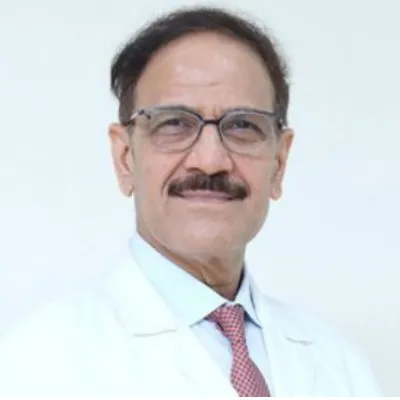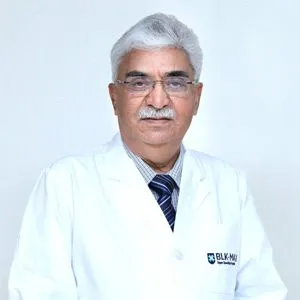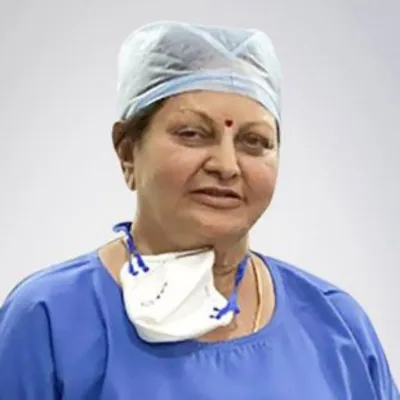Top Lung Transplant Surgeons in Artemis Hospital Gurgaon
 09 January,2026
Read More
09 January,2026
Read More
Starting From: USD 1800-7000
Procedure Type: Surgical Procedure
Hospitalization Days: 5-8 Days
Procedure Duration: 2-6 Hrs
Recovery Time: 6-8 Weeks
Success Rate: 98%
Open Heart Surgery is affordable in India. The cost of Open Heart Surgery in India lies between USD 1800-7000. The exact procedure price depends on multiple factors such as the surgeon's experience, type of hospital, severity of the condition, patient's general condition,�etc.
Cardiac surgery, including open heart surgery, involves surgical procedures to treat heart conditions by repairing or replacing damaged heart structures. Open heart surgery requires opening the chest to access the heart directly, allowing for complex repairs such as bypassing blocked arteries or replacing heart valves. After surgery, patients often experience optimal heart function and an improved quality of life. The open heart surgery cost in India is very affordable as compared to other countries.
India is slowly becoming the hub for medical tourism. It has internationally accredited hospitals and experienced surgeons. Patients also benefit from personalised care, reflecting India's cultural emphasis on hospitality.
Heart surgery is generally recommended for individuals with:
1. Severe Coronary Artery Disease (CAD):
2. Heart Valve Disease:
3. Congenital Heart Defects
4. Heart Failure:
5. Arrhythmias:
Always consult your doctor to determine if this surgery is the right option for you.
The open heart surgery cost in India can broadly be categorized into the following approximate ranges:
The maximum cost goes high when procedures like heart transplants are involved. The rest of the figures generally cover routine heart surgery performed without complications.
Several elements can push your heart surgery cost in India higher or lower. The main factors affecting the cost of open heart surgery in India are as follows:
Here is an overview of heart surgery costs in 10 major Indian cities. USD equivalents are approximate and subject to currency fluctuations.
|
City |
Min Cost (INR) |
Max Cost (INR) |
Min Cost (USD) |
Max Cost (USD) |
|
New Delhi |
INR 1,20,000 |
INR 5,50,000 |
USD 1,390 |
USD 6,371 |
|
Mumbai |
INR 2,80,000 |
INR 8,00,000 |
USD 3,243 |
USD 9,267 |
|
Bengaluru |
INR 2,10,000 |
INR 6,50,000 |
USD 2,433 |
USD 7,529 |
|
Chennai |
INR 1,20,000 |
INR 4,40,000 |
USD 1,390 |
USD 5,097 |
|
Hyderabad |
INR 2,20,000 |
INR 8,00,000 |
USD 2,548 |
USD 9,267 |
|
Kolkata |
INR 1,30,000 |
INR 4,00,000 |
USD 1,506 |
USD 4,633 |
|
Pune |
INR 1,50,000 |
INR 9,00,000 |
USD 1,738 |
USD 10,425 |
|
Ahmedabad |
INR 2,05,000 |
INR 5,50,000 |
USD 2,375 |
USD 6,371 |
|
Chandigarh |
INR 2,25,000 |
INR 8,00,000 |
USD 2,606 |
USD 9,267 |
|
Gurugram |
INR 1,20,000 |
INR 5,00,000 |
USD 1,390 |
USD 5,792 |
Metros generally have broader cost brackets because of a higher density of high-end hospitals. It is always recommended to consult a healthcare provider for precise cost estimates.
Medical tourists often compare multiple destinations for the best combination of cost and expertise. Below is a generalized comparison:
|
Country |
Approx. Range (USD) |
|
India |
USD 1,800 – USD 7,000 |
|
UAE |
USD 25,110 – USD 32,950 |
|
Thailand |
USD 8,000 – USD 28,000 |
|
Turkey |
USD 50,000 – USD 100,000 |
|
USA |
USD 35,624 – USD 84,080 |
|
UK |
USD 25,000 – USD 50,000 |
Several international patients travel to India seeking medical care. India distinguishes itself through a combination of cost-effective treatment options, sophisticated hospital facilities, and highly qualified medical specialists.
1. Consultations & Diagnostic Tests:
2. Other Evaluations:
If you have coexisting conditions like hypertension or diabetes, additional tests may be required.
In rare instances, re-hospitalisation may add to your expenditure.
Leading hospitals generally accept insurance coverage from both domestic and international providers for the open-heart surgery package cost in India. It's advisable to check beforehand if your policy covers low-cost open heart surgery in India and understand the extent of coverage offered by your insurer. Be mindful of any applicable deductibles or co-payment requirements.
Additionally, many healthcare facilities provide alternative payment options, such as installment plans or specialised medical financing, to reduce upfront costs. It is recommended that these arrangements be discussed in advance to understand any potential undisclosed fees or limitations on coverage.
Are you looking for affordable open-heart surgery in India? Here are some tips you can follow to reduce the financial strain while getting the best out of your surgery:
Planning medical treatment abroad can be challenging, particularly for critical heart conditions. The Open Heart Surgery cost in India presents considerable financial advantages compared to Western medical facilities, making it an attractive option for international patients. Medijourney serves as a comprehensive liaison between patients and India's premier cardiac specialists and hospitals.
We deliver extensive support beyond medical coordination, including assistance with visa requirements, language services through our multilingual staff and interpreters, and customised accommodation arrangements across various budget levels. Our support team remains accessible around the clock to promptly address any issues or concerns, ensuring your medical journey proceeds without unnecessary stress.
We are committed to facilitating a structured, worry-free recovery process that empowers you to make well-informed, economical healthcare choices. When considering heart surgery cost in India, trust Medijourney as your dedicated partner, where your health and recovery take precedence above all else.
Answer: The cost typically ranges from USD 1,800 to USD 7,000, depending on the procedure and hospital.
Answer: Key factors include the type of surgery, hospital and city, surgeon’s experience, ICU stay, pre-/post-surgery care, and insurance coverage.
Answer: CABG is a type of open-heart surgery, usually costing ?1.8 lakh to ?3.6 lakh, while other open-heart procedures may be higher or lower based on complexity.

Chairman
Interventional Cardiologist
BLK-Max Super Speciality Hospital, New Delhi

Director
Cardiologist, Interventional Cardiologist
Max Super Speciality Hospital, Saket, New Delhi

Chairman
Cardiac Electrophysiologist, Interventional Cardiologist
BLK-Max Super Speciality Hospital, New Delhi

Consultant
Interventional Cardiologist
Indraprastha Apollo Hospital, New Delhi

Head of Department (HOD)
Cardiologist
Nanavati Super Specialty Hospital, Mumbai

Consultant
Interventional Cardiologist
Apollo Hospital Chennai, Greams Road
Doctor of Pharmacy
Dr. Deepanshu Siwach is a skilled clinical pharmacist with a Doctor of Pharmacy degree.?He has 4+?years of experience and has worked with thousands of patients. He has been associated with some of the top hospitals, such as Artemis Gurgaon.
Dr. Deepanshu Siwach is a skilled clinical pharmacist with a Doctor of Pharmacy degree.?He has 4+?years of experience and has worked with thousands of patients. He has been associated with some of the top hospitals, such as Artemis Gurgaon....
Dr. Aseem Ranjan Srivastava is an experienced Pediatric Cardiothoracic Surgeon specializing in Minimal Access and Robotic Cardiac Surgery. He strongly recommends prompt corrective repair when possible....
The Art of Effective Communication
 09 January,2026
Read More
09 January,2026
Read More
 02 January,2026
Read More
02 January,2026
Read More
 30 December,2025
Read More
30 December,2025
Read More
 24 December,2025
Read More
24 December,2025
Read More
 23 December,2025
Read More
23 December,2025
Read More
 17 December,2025
Read More
17 December,2025
Read More